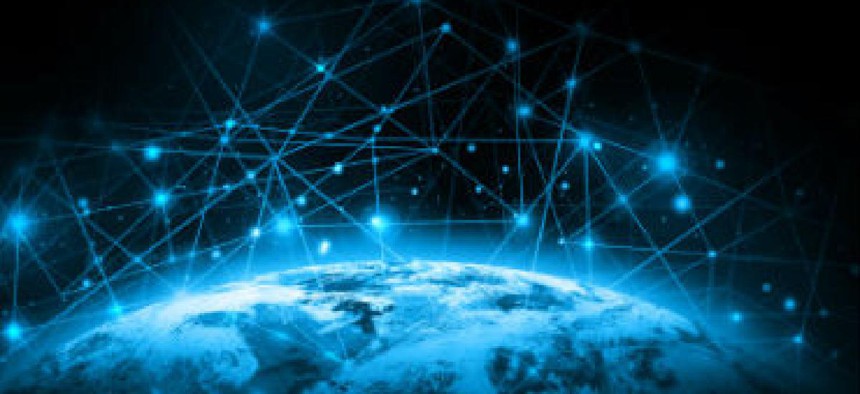Is the U.S. handing over control of the internet?

Despite some alarmist headlines about the transfer of a key internet architecture function, the fact remains that the U.S. cannot relinquish control that it does not have.

Some recent headlines might lead one to believe that the internet is about to undergo some giant change. People talk about the U.S. "giving away" the internet, and even the 2016 Republican Party platform objects to "surrendering U.S. control of the root zone of web names and addresses."
But the truth is that on the internet, nobody has control. The internet doesn't work that way. The U.S. cannot hand over controls that it does not already have.
Something is about to change -- that much is true. Since its founding in 1998, the Internet Corporation for Assigned Names and Numbers (ICANN) has held a contract with the U.S. Commerce Department's National Telecommunications and Information Administration (NTIA). That contract was for "IANA functions," which are useful and important functions that allow parts of the internet to work the way they do.
IANA, which stands for Internet Assigned Numbers Authority, is like a land registry for the internet that prevents two different functions from laying claim to the same value at the same time.
For instance, when you visit a web page, you probably use the conventional port 443 for a secure connection. Everyone knows to use port 443 for this purpose (as opposed to, say, port 25, which is for mail) because it's written down in an IANA registry. It wouldn't matter which number we used as long as everyone used the same number. If everyone does not, then in order to make a connection you'd first have to negotiate what port to use, and that would be less convenient.
It really is a matter of convenience. We could negotiate the ports instead -- there's even a way already built to do that -- but it's more work. By and large, engineers prefer the easier path when it is available.
One of the IANA registries is the Domain Name System root zone. It holds the name servers for the top-level domains (such as .com and .org and country codes such as .us, .cn and .in). Ultimately, in the DNS, every response depends on the values in the root zone. This is why the job is a critical function.
But of course, we don't actually need to use DNS. We do it because that's what we've used since the 1980s, and it works. But other name systems have been invented and deployed, and they don't depend on a root zone. Also, even if we keep using DNS, nobody can force you to use the same root zone as everyone else. It's just much less convenient if you don't.
The current contract for the IANA functions between ICANN and NTIA is set to expire on Oct. 1. NTIA has announced that it plans to not renew the contract, which means ICANN's job will not be supervised by the U.S. government anymore.
That is the "giveaway" some people are complaining about.
But there is a difference between being critical and being in control. The land registry office is a critical function to make sure the ownership of property is recorded. That doesn't mean the land registry controls where people live.
The end of oversight by the U.S. government does not mean that ICANN gets to do whatever it wants. Instead, in the past two years, the internet community came together to invent new, community-based ways of ensuring that ICANN does a good job. If it doesn't, the community can, in effect, fire ICANN. That is the way everything already works on the internet. The idea is to take the existing successful model of the open internet, built by voluntary collaboration, and use it again for that purpose.
But even today, if people did not find the system useful, they would choose something else. This isn't some utopian dream of techno-libertarians. It's part of the nature of inter-networking. The internet is a network of networks. Each network voluntarily chooses to exchange packets with other networks. Each makes the rules for how it will work. That means that when the various networks all decide to use the IANA registries as they are operated today, it is because they find that system more useful than alternatives.
If the IANA system ceases to be useful (or starts to be too politically controversial), then people will choose something else. And there is no central point where people could be forced to use the IANA system because there is no center in a network of networks. That is also the reason why nobody -- not China, not Russia and not the bogeyman in the basement -- can "take over" the internet.
The United States is not "giving away" the internet. NTIA is wisely acknowledging that the internet has grown up and that the system works as designed and doesn't need governments to keep it going. On Oct. 1, nobody will be able to tell that anything has changed. We should all be thankful that NTIA recognizes that its job is complete and that it can step back confident that the same enlightened self-interest that keeps the internet delivering its magic will work for this part of the internet, too.


